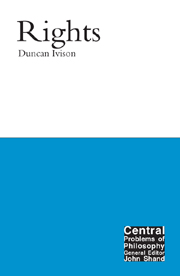4 - Dignity
Summary
The debate is occurring because the Supreme Court's ruling that said that we must conduct ourselves under the Common Article III of the Geneva Convention. And that Common Article III says that there will be no outrages upon human dignity. It's very vague. What does that mean, “outrages upon human dignity”? That's a statement that is wide open to interpretation …
(President George W. Bush, White House Press Conference, 15 September 2006)Introduction
Rights are connected to substantive views about the nature of persons. They are a way of expressing what it would mean to treat someone as a person, and as a citizen of a particular kind of state or political community. Rights also emerged in relation to a particular set of historical circumstances. They are associated with a concern about the kinds of threats that individuals face from the exercise of social and political power, by both the state and other powerful political actors. It is not just a matter of who should rule, but how there can be any legitimate coercive rule at all, given that individuals are supposed to be free and self-determining in the first place. The Grotian and Lockean emphasis on natural rights and natural law has been an influential language in which to make sense of these ideas. Here and in Chapter 5, I want to turn to two other ways of thinking about rights: dignity and recognition.
- Type
- Chapter
- Information
- Rights , pp. 94 - 127Publisher: Acumen PublishingPrint publication year: 2007



